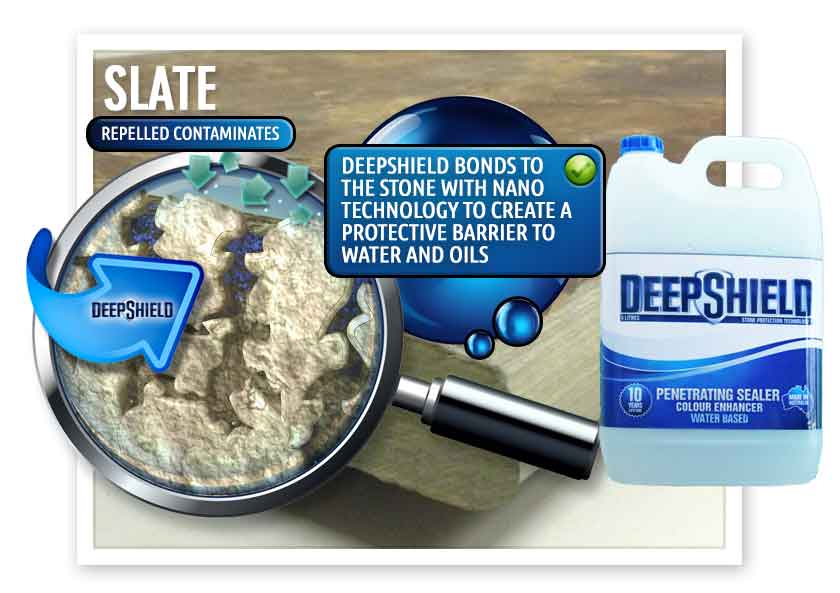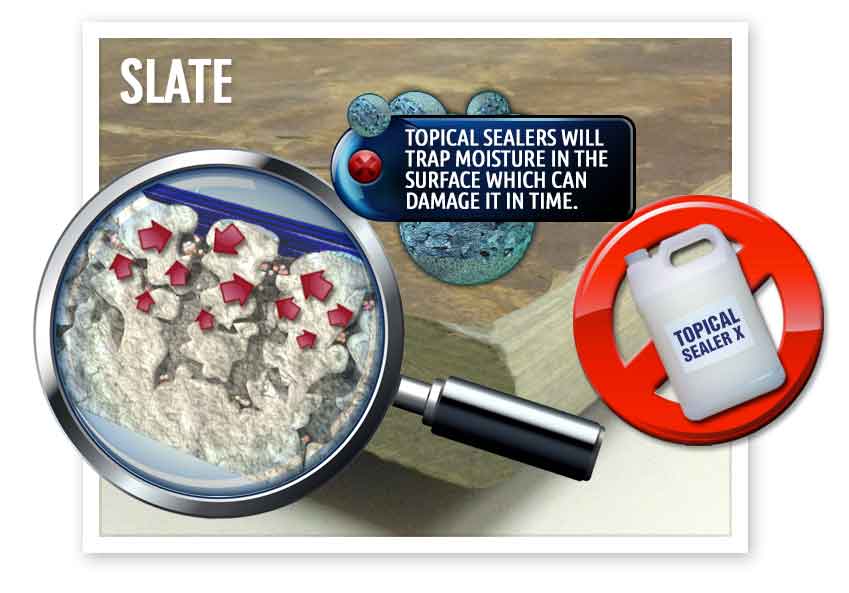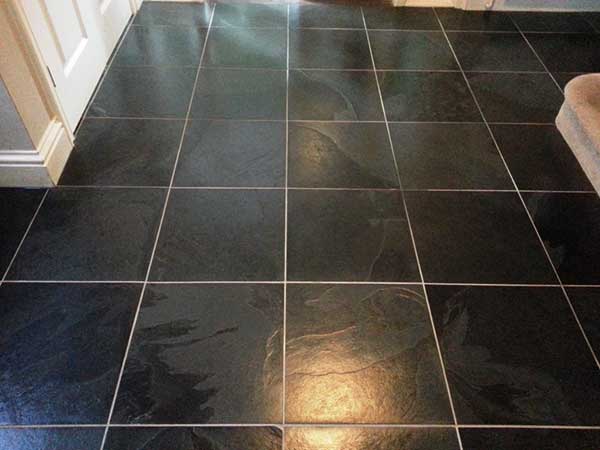Slate Resealing Toowoomba
We provide specialised Slate floor resealing solutions tiles for all types of Slate.
To schedule your appointment or to obtain a free estimate, please Call 0478 085 801 or use our online enquiry form.
We cover all Toowoomba suburbs
Wherever your Slate tiles are, in the kitchen, shower, bathroom, around the swimming pool, your backyard, outdoor or any indoor areas that are hard to reach, we will be able to strip, clean and reseal them for you.
Slate Cleaning ® are the leading experts in slate tile resealing , with our large client base that varies from the largest shopping centres, schools, hospitals, clinics, big to small offices, home owners, and various other business owners you can rest assured that you are getting the best service . Our thorough cleaning processes and our best protection products will bring back to you the best and freshest looking slate floors and keep them protected and preserved against staining for a long period of time.
Give us a call, we are happy to help you with your slate floor enquiry, or you can enquiry with us online and we will give you a call back as soon as we can. If you call now we will give you a free quote and you will be able to work out what service is best for you and we will guarantee your satisfaction with our professional service. You can call us at all times as we provide our slate resealing service after hours for your convenience.
The topic of sealing slate tile floors seems to have more questions around it than you would expect. Do you need to seal them at all? When do you seal them? What do you seal them with? The quick answer is, if in doubt, seal them and use a impregnating penetrating, water-based sealant. Need more? Call 0478 085 801.
To seal, or not to seal, that is the question. If you are about to install a slate floor, you have probably heard conflicting opinions about sealing your tiles. The conflicting advice comes from the different experiences contractors and homeowners have had with slate tiles.
Different experiences come from using different types of slate. Sealing slate isn't necessary, especially if you want to keep the natural look and beauty of the slate, but if the stone is porous and/or you aren't experienced at grouting, seal the stone first. Furthermore, sealing slate is important if you want a shiny or matte finish.
We provide specialised Slate floor resealing solutions tiles for all types of Slate.
To schedule your appointment or to obtain a free estimate, please Call 0478 085 801 or use our online enquiry form.
We cover all Toowoomba suburbs

What is Slate?
Slate is a foliated metamorphic rock which is derived from shale and consists mainly of grains of mica and quartz. Excellent exterior paving stone. Higher absorbency varieties are not suitable for exterior areas in freezing climates. Most slate is gray to black, but the rock may be red or purple, depending on its mineral content. The surface of slate is generally uneven and cleft planes can spall, due to the cleaving of the stone along its layers. Has low to medium absorption of oils and other liquids. Should be sealed with an oil-repellant penetrating sealer to prevent staining and reduce soiling. Because of the cleft planes and strong possibility of spalling, it should never be cleaned at pressures above 800 PSI and then only if the grout is in good condition.
Are Slate Tiles Porous
Slate typically comes from Brazil, Vermont, China and India. The Brazilian and Vermont slates tend to have a low absorption rate, while Indian and Chinese have variable absorption rates. The softer slates need more attention with sealants before and after installation than do the harder slate tiles. Slate is a metamorphic rock, starting as a sedimentary rock and with pressure and temperature over time became slate. Because it has some porosity, you may want to seal it to keep it from staining.
A bit more about the origin of your slate will help you determine how you want to treat it. Brazilian slate is typically dense and has variegated colors while Vermont slate is typically dense, smooth and one consistent color (black, blue, green red). In contrast, Chinese and Indian slates are typically variable in density (soft to hard) and variegated coloring, with a wide range of colors. If you get a soft slate, typically Chinese or Indian, pre-seal with a porous stone sealer.
Some Indian and Chinese slates will flake and powder from foot traffic. This is not rust or other minerals coming to the surface. These are spots of softer material becoming loose particles. Some slates may be quite hard, but have a soft spot that can powder out. Some black and brown slates (if unsealed) can lose color from aggressive cleaning.
We provide specialised stripping & sealing solutions for slate floor surfaces.

Sealing Slate Floors
You have just finished laying slate floor tiles so the next thing you will probably think about is sealing slate. Is sealing slate necessary and does it make a difference to the look. There is lots of advice around about sealing slate but you are better off sealing slate than not. We also think that using a slate sealer enhances the look of slate and depending which one you use you can get a dull or shiny finish.
Who do you listen to when the many different types of slate used will give different results you could draw from? The best is listen to the experts and there are no better experts than those at Slate Cleaning ®.
We at Slate Cleaning ® recommend that you seal your slate floor as this will give your slate and grout the maximum protection, especially if you want to keep the natural look and feel of the slate. Also, sealing slate is important if you want a shiny or matte finish.
Slate tends to have variable absorption rates. Softer slates need more attention with sealants before and after installation than do harder slate tiles. Because slate is a metamorphic rock, starting as a sedimentary rock it has some porosity so sealing slate will keep it from staining.
What look do you want your slate floor to have - natural, wet, or glossy? You can get the wet-look without going glossy by choosing the right finish. There are finishes that will look natural after application, but many people love the wet-look for their slate floors.
Slate is quite dense, but it is still highly porous - a tablespoon of water left on the slate for about 30 minutes will leave a deep mark. Slate should definitely be sealed to keep it looking good for a long period of time.
Since slates tiles can naturally look kind of drab but there are various sealing solutions designed to enhance the color and apply a glossy finish to them.
There are three main types of sealing options available for slate tiles.
- Impregnating clear / transparent sealer.
- Color Enhancing Impregnating sealer.
- Topical glossy sealer.

An impregnating clear sealer will protect the slate and grout from water based and oil based stains. You probably can see how porous natural slate is just by applying a drop of water to the slate surface and see how the slate absorbs the water. You can imagine how any type of water based stain will be absorbed by the slate tile surface and also the grout. Therefore an impregnating clear sealer will protect the slate surface from absorbing stains and make it easier to clean the slate and the grout.
Types of Slate sealers
Both water based sealers and solvent-based sealers can be used on slate. However, unless needed for a specific reason, we always recommend using water based sealers as they are do not produce smelly fumes on application and removal, and they are a lot easier to apply and remove, and take less drying time. In fact, solvent-based sealers are now banned in many parts of the world, including most of Europe.
It is however important to know which type of water based sealer to use on your slate tile, which also depends on wether they are inside or outside, as most sealers will not last long outside as they are designed for internal use. So if your slate is outside, it is important to use a water based sealer that is specifically made for outdoor slate.
You should always ensure that the tiles themselves are completely clean, before you attempt to seal up the tile. This will protect the appearance of the tile, and help to be sure that there won't be any dirt or other debris caught under the layer of sealant.
Sealer Drying Times
After you have applied your last coat of penetrating slate tile sealant, let cure for at least 24 hours before walking on the floor. The longer you can let it cure before walking on it, the better protection you will have, and the longer the finish will last.
We provide specialised Slate floor resealing solutions tiles for all types of Slate.
To schedule your appointment or to obtain a free estimate, please Call 0478 085 801 or use our online enquiry form.
We cover all Toowoomba suburbs

Topical Slate Sealers
Topical sealers (glossy plastic coating over the top of the slate) are still used on slate, but these older style sealers can trap moisture in the stone and make the surface very slippery when wet. Plus, when a topical sealer wears in higher traffic areas, the entire surface has to be stripped and re-sealed,
Impregnating Slate Sealers
To provide premium protection from oil and water-based stains, maintain the look and slip resistance of the slate and prevent damaging moisture from being trapped within the stone, it is important to seal slate with a high quality, invisible, fully breathe-able impregnating sealer.
Our Slate Floor sealing service will protect your slate tiles and keep them looking fresh and new.
Grouting Slate Tiles
After you grout the tiles (preferably with latex grout because it increases flex strength, reduces efflorescence, and has great bond strength), let it dry, ideally for a week, before cleaning the tiles. You want to wash the tiles thoroughly, several times, to remove all remnants of excess grout so that it won't become a permanent part of your slate floor. When the tiles are dry from the washing, you can apply two more coats of penetrating sealant. This step is to add further protection to the slate, but also to the grout and grout-tile interface.
To seal or not to seal? Go for it with a penetrating, water-based slate tile sealer and enjoy your natural stone floor for years.

Stripping Waterbased Sealer vs Stripping Solvent Sealer
When it comes to stripping sealer off slate tiles, what type of sealer was used to seal the slate tiles prior makes a big difference to how to strip it. In general, if your slate tiles were previously sealed using a water based sealer, then it should be relatively easy to strip the old sealer. However, if solvent or poly urethane sealer was used, then this job can be very time consuming, and usually requires the use of very special toxic products, so you should always call a professinal to do this for you. Here at Slate Cleaning ® we offer our slate stripping and resealing services all around .
There are two types of impregnating clear sealers, Water based clear sealer & Solvent based clear sealer. In the past solvent based sealers were used as they used to absorb deeper into the slate and grout and used to last longer. However today with all the new advanced types of quality water based sealers available in the market, it is reccomended to use water based sealers only, which typically have less of an odor when applying and removing.
Applying a solvent based clear sealer can be much more difficult to apply and can cause major problems if applied incorrectly, and is also alot harder to remove. We reccomend the use of water based sealers in most cases.
At Slate Cleaning ® we generally recommended to our clients the application of a water based sealers to their slate tiles and grout.
We provide specialised cleaning, stripping & sealing solutions for slate floor surfaces.
Our equipment can handle both residential and commercial cleaning jobs, leaving your floors spotless and hygienic.
We provide specialised stripping & sealing solutions for slate floor surfaces.

Field Service Management Software



















